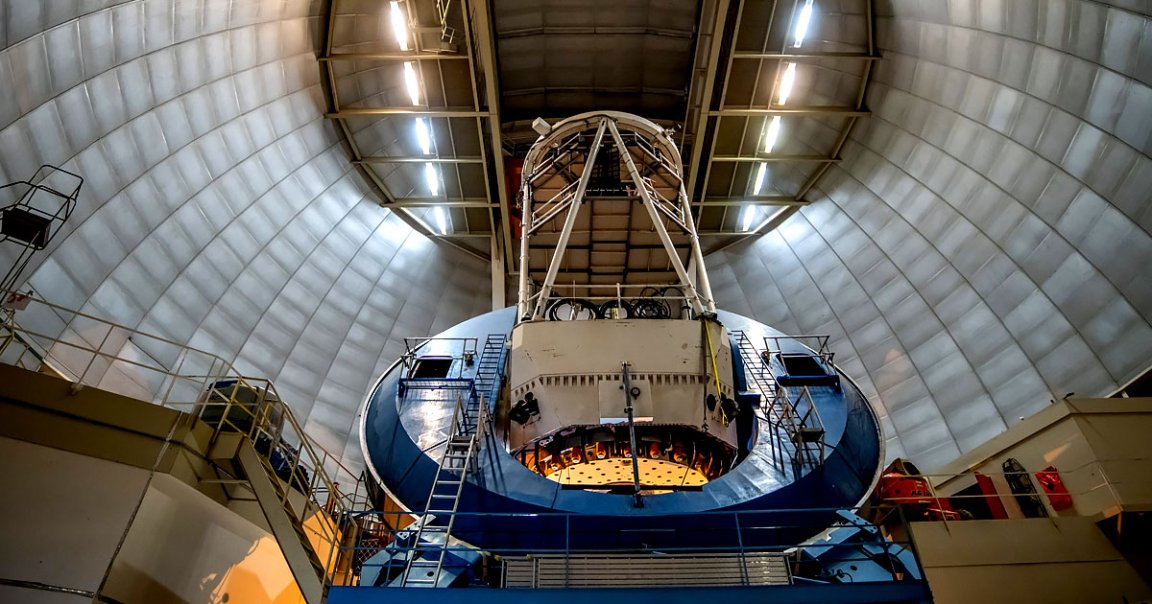
Astronomers have long puzzled over the mystery of dark energy, a mysterious substance that appears to make up almost 70 percent of the universe and which seems to be intricately linked to the cosmos’ expansion.
But a new experiment could shed light on the mystery of dark energy. Last week, scientists achieved “first light” — the first time an instrument or telescope collects light particles — with the Mayall Telescope’s Dark Energy Spectroscopic Instrument (DESI).
The new instrument will map the overall structure of the universe, up to about 11 billion light years from Earth according to a press release, to see how fast and how much it’s expanding — and perhaps give us clues about the nature of dark energy in the process.
The device’s robotic array of 5,000 fiber-optic “eyes” is designed to automatically narrow its gaze at sets of galaxies and map their exact distance from Earth by gathering their light and splitting that light into narrow bands of wavelengths. And at a dizzying rate: it can cycle through 5,000 galaxies every 20 minutes. Astronomers are hoping to begin formal observations early next year.
To professor of astrophysics at the University of Portsmouth Bob Nichol, DESI has the potential to “spark a revolution in theoretical physics” by examining the mysteries surrounding dark energy and the fundamental laws, if there are any, that constrain the size and expansion of the universe.
“Despite the fact that most physicists have now accepted that there is such a thing as dark energy, we still do not know its exact form,” he wrote in a piece for The Conversation. But “new instruments like DESI will help take the next step in resolving the mystery.”
The new instrument could also tackle some even more fundamental laws of astrophysics that have been upheld for over a century.
“DESI should also be able to constrain, and even kill, many theories of modified gravity, possibly providing an emphatic confirmation of Einstein’s Theory of General Relativity on the largest scales,” Nichol added. “Or the opposite—and again that would spark a revolution in theoretical physics.”
READ MORE: Dark energy: new experiment may solve one of the universe’s greatest mysteries [The Conversation]
More on dark energy: Some Black Holes May Actually Be Blobs of Dark Energy